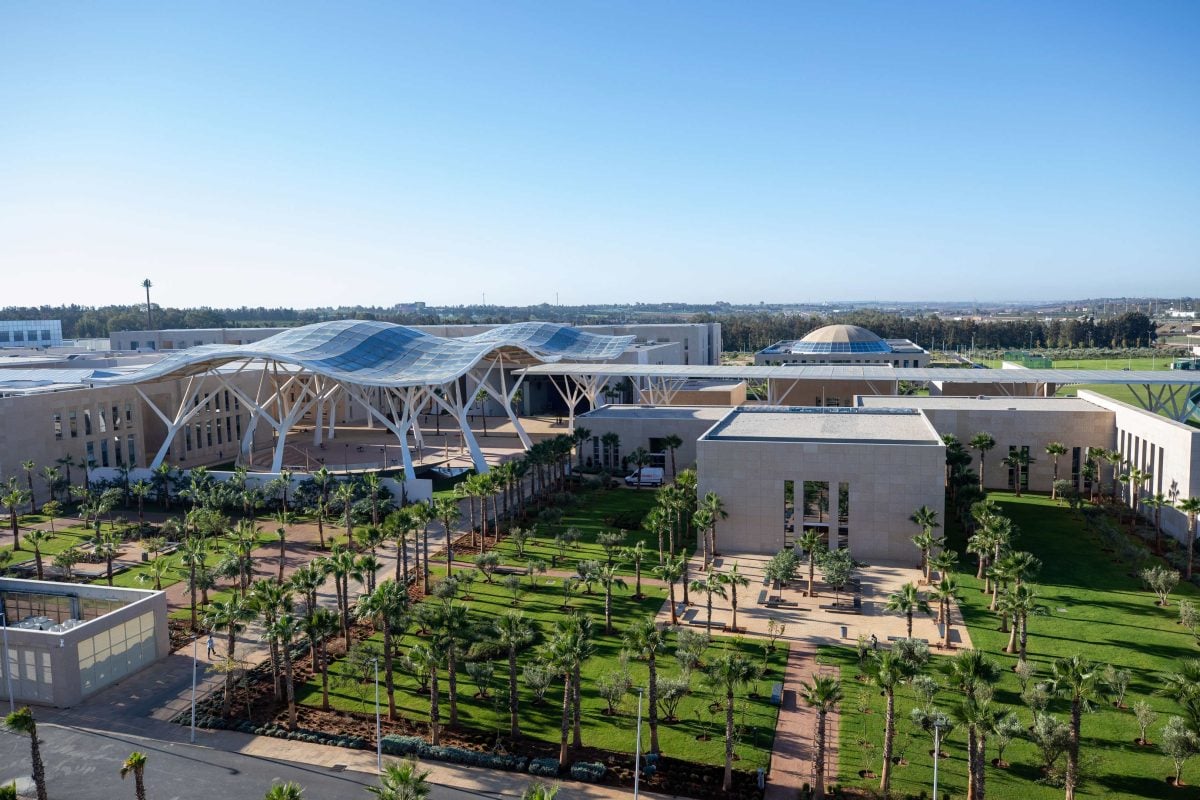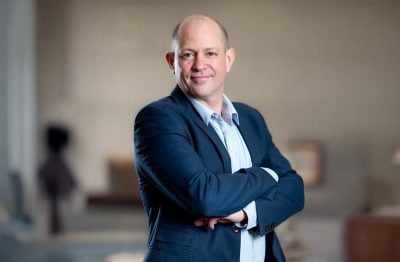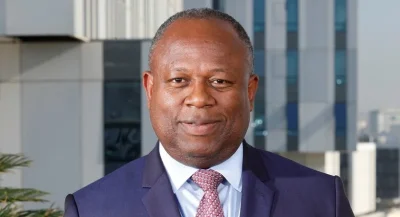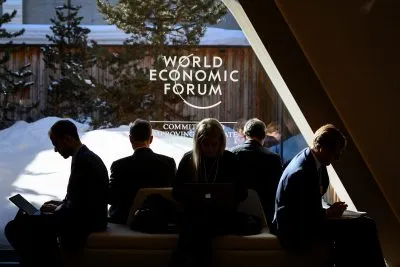Africa is the only continent where the population is rising rather than falling – by 2050, Africa’s population will double to 2.5bn, accounting for a quarter of the world’s people. What is not clear is whether this huge demographic bulge in a boon or a curse for the continent.
A rising population could help to boost economic growth – but only if there are additional jobs to absorb the expanded workforce, and if this workforce is equipped with the skills needed to carry out the work.
University Mohammed VI Polytechnic (UM6P) in Morocco has thought through the problem and evolved a model which it says is capable of producing highly skilled graduates able to rival the best from any other continent.
UM6P’s main campus is situated in Benguerir, near Marrakech, within the heart of the Mohammed VI Green City. The institution has organised itself as a citadel of applied research, innovation, and, interestingly, the development of Africa.
Under a foundation within UM6P ecosystem, also funded by the OCP Foundation, is a high school for outstanding students from underprivileged backgrounds as well as a sports centre of excellence training physically gifted students in competitive swimming, athletics, judo, taekwondo and golf.
The University was officially launched in 2017 with initial support from the OCP Foundation. According to Amina Lahbabi, Head of Corporate Communication at UM6P, the university has rapidly emerged as a leading institution dedicated to Morocco and Africa’s development priorities. UM6P now operates as a fully-fledged institution with multiple campuses across Morocco and international branches in Europe and North America.
A key pillar of its mission is to train some of the brightest minds from Morocco and Africa through a ‘learning by doing’ approach. The emphasis is on practical application and real-world experience that equips graduates with the skills and knowledge to contribute to societal and economic progress.
Lahbabi notes that much of the university’s research centers around Africa’s critical challenges, including agriculture, soil science, ag-tech, renewable energy, and technological innovation. Within this dynamic ‘living lab’ environment, UM6P is dedicated to developing scalable and sustainable solutions that address local needs while contributing to Africa’s broader development agenda. Impact is at the heart of its mission.
A multi-disciplinary university
It has become a multi-disciplinary university and the number and scope of its departments is still increasing. “Yes, we are strong in certain fields; but it is important as an institution to have a multi-disciplinary approach to problem solving,” says Jones Alami, head of the materials science, energy and nano-engineering department.
What immediately strikes visitors when you enter the campus is the deliberate messaging that says “this is an institution that is here to support Africa”; and this is also the mindset that found among its faculty members. The official teaching language is English, but everyone appears to be bi-lingual. The admission criteria are very high – this is after all a centre of excellence; nevertheless, supporting the less well-off is central to its objectives.
An operational criterion when it comes to its research programmes is a focus on impact. It aims to empower Moroccan youth as well as students across Africa – nurturing leaders and entrepreneurs with the capacity to shape the continent’s future.
Its innovative pedagogical approach emphasises learning through experimentation and practice, encouraging creativity and curiosity among students, faculty and partners.
Its president, Hicham El Habti, aptly summarised what UM6P stands for; he describes it as a “symbol of a new active, involved, enterprising and ambitious Africa,” as well as “a centre of excellence that trains a new generation of committed leaders, builders of the Africa of tomorrow.”
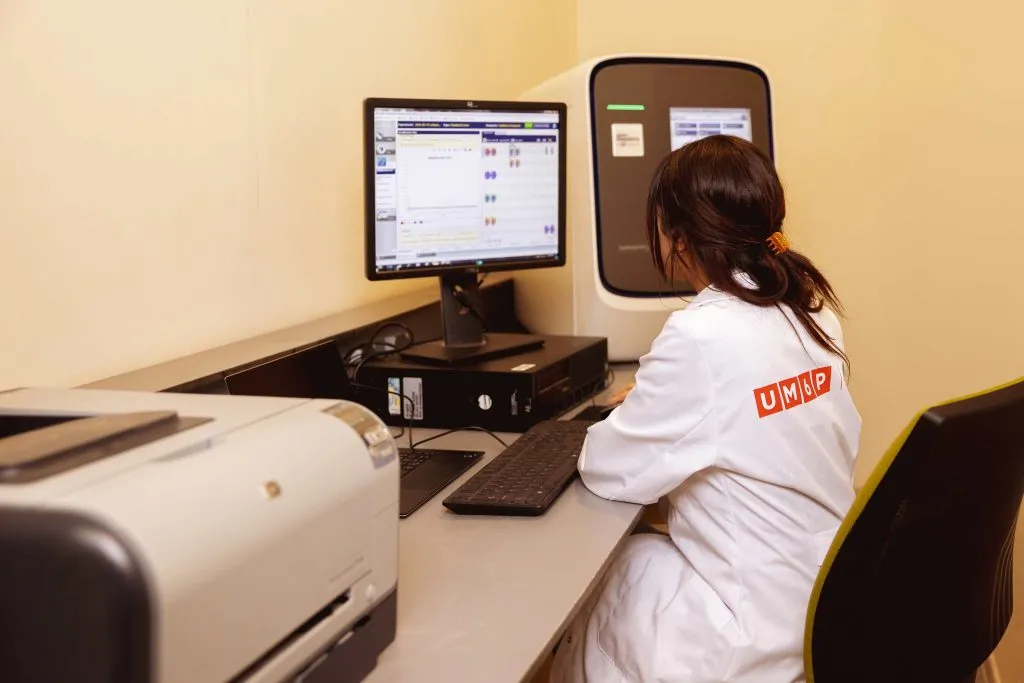
Structure of study and ethos
UM6P study programmes are organised into four main branches: the Division of Science and Technology, focusing on industrial management, computing, green technology, agriculture, and architecture; the Division of Human, Economic, and Social Sciences, including economics, social sciences, governance, and public policy; the Department of Business and Management, with collective intelligence, business management and hospitality; and the Medical and Paramedical Centre covering medicine, biology, and paramedicine.
The facilities offered by UM6P strive for world-class standards, even though the university is still quite small. In the 2024-25 academic year 7,229 students will enjoy the UM6P experience. Of these, an estimated 3,604, from 40 countries, will partake in 42 “conventional” programmes, with a gender ratio of 61-39 in favour of females.
The majority of these students are engaged in Bachelor level programmes, while 475 are in Master’s programmes and 995 (28%) are pursuing doctoral programmes.
Engineering courses will enrol 555 students (15.5%); social sciences, economics and humanities will have 759 students (21.1%) and science and technology programmes will cover 1,154 students (32%). Another 336 students (9.3%) will study health related programmes while 360 students (10%) will pursue business and management courses.
What is classified as “unconventional programmes” account for 3,625 students, divided among the Mahir Network (205 students, 5.6%), YouCode (420 students, 11.6%), and the “1337” software and coding programme (3,000 students, 82.8%). Some 60% of students have some form of bursary assistance, with 80% of these on full scholarships.
Professor Alami reiterates that a significant part of the university’s mission is to find workable solutions to real problems that the country and continent face. His department consists of 10 research groups organised into three clusters. The energy transition cluster, for example, focuses on energy storage, hydrogen, carbon capture utilisation, and photovoltaics.
The other clusters include studies into such practical subjects as the composition of materials, their extraction and purification and sustainability as well as metallurgy.
While each group conducts independent research, they also collaborate to tackle complex challenges.
Discussing the perennial energy issue, Alami says, “The idea is to accompany Morocco in its energy transition. That’s our starting point. We are in Morocco, in Africa: there’s sun, there’s access to the sea, certain raw materials. So from those inputs, we have developed a strategy for what kind of research we want to do.”
Turning to collaborations, Alami says the university has active partnerships that stretch from North America through Europe to Asia. The idea is to reap the collected expertise of these partners and to domesticate and build on them. The results are already beginning to show. “We have close to probably 40 patents and patent applications. Given that we have only just started, I think that’s quite good for development,” he observes.
International ranking
Significantly, after just seven years of existence, the university is ranked by the Times Higher Education index among the top 500 universities globally. This ranking evaluates institutions based on four quality indicators in teaching, research, international outlook and industrial innovation.
Reflecting on the ethos of UM6P, Alami says: “It’s about developing a culture of rigour, professionalism, and human augmentation. Yes, we focus on technical research, but we also work to empower individuals through programmes in leadership, communication, and innovation. It’s as much about human development as it is about academic excellence.”
What sets UM6P apart, he adds, is its commitment to African and Moroccan values. “We’re not copying any model. But the framework we’re building is uniquely African, designed to serve our purpose and reflect our identity.” The community at UM6P is very diverse. “Our researchers come from all over the world – Japan, India, Germany, France, Canada – alongside talented Moroccans and Africans from here and abroad. This melting pot of perspectives creates a vibrant environment for collaboration.”
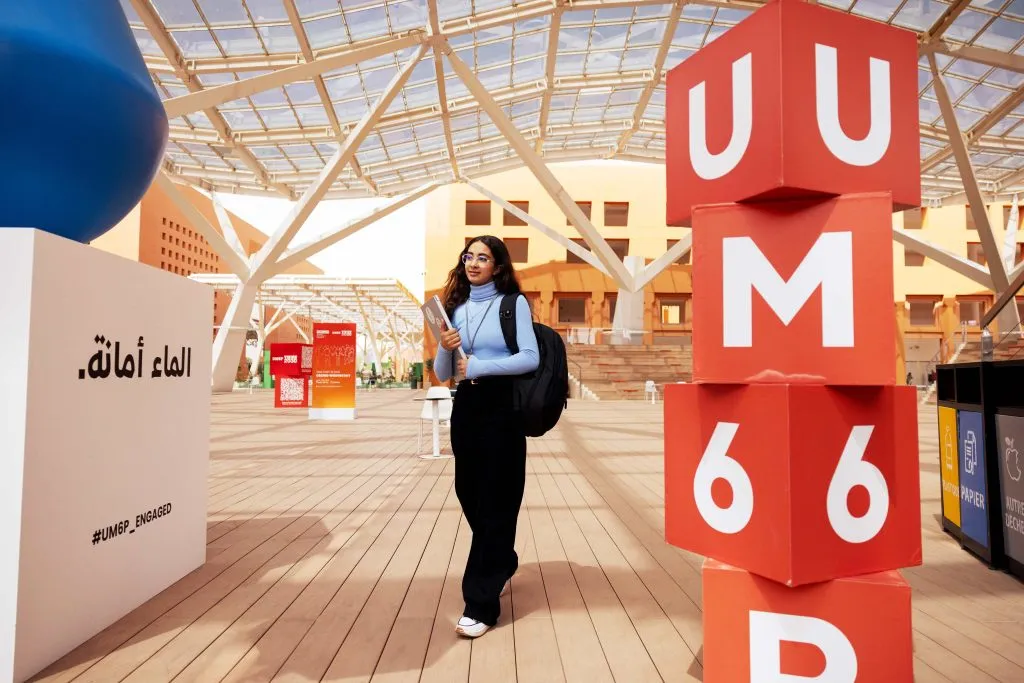
Computing at the heart of it
At the school’s college of computing, faculty head Lamiae Azizi says: “We don’t [just] teach the basic concepts that other computer science [courses] do; we always try to tie them to real world applications. Most of our faculty members actually work with industry.”
Getting students to learn while doing also means that at UM6P students do not need to wait until the third year before being tested in the field. Internships are available from the first year, so they can get a real feel of the concepts they are studying in class.
Entrepreneurship is key to the whole concept. “We have a programme called Startup Garage where we encourage our students who are now entering the first year of engineering to become entrepreneurs after three years. They will be working on challenges and problems developed by industry and coming up with solutions.”
The idea, Azizi explains, is inspired by the entrepreneurial culture of California’s Bay Area, where some of the world’s leading technology companies are reputed to have been built out of garages. “So that’s the spirit of it. This is how we train our students.”
The department’s remit covers the gamut of computing technology, from “the hardware to specific domain problems, to anything related to novel technologies or novel algorithms in AI, data science or cyber security.”
The rationale for the focus on computing at UM6P, Azizi says, is that nearly all science and research are driven by it. “The Nobel Prizes in physics and chemistry are no longer just about traditional physics or chemistry; they are about artificial intelligence. Innovation in any sector now relies on computing.” Computing, thus, is not just essential for advancing scientific knowledge but is central to bridging the gap between research and industrial application.
“Africa, and particularly Morocco, has a rich talent pool in mathematics and theoretical computer science,” Azizi notes. This strength is key to nurturing the versatile and well-rounded computer scientists that the market demands. In line with the rapid evolution of computing, the university offers a range of specialised paths, including software engineering, AI engineering, data science, and high-performance computing (HPC).
In 2021 UM6P unveiled Africa’s most powerful supercomputer, the African Supercomputing Centre. A remarkable capacity of 3.15 petaflops means that it is capable of performing over three million billion operations per second.
This ultra-fast technology will enable the university, it hopes, to make significant strides in scientific breakthroughs across various fields.
“High performance computing is one of the biggest infrastructure needs for emerging technologies like AI and quantum computing,” Azizi explains. That capacity is still rare in Africa and its presence at UM6P places the university in a lonely lane on the continent.
Solid finances
The university is able to make investments of this scale and sophistication because it has the sort of financial backing that few in the continent – or even those outside – can boast of.
The OCP Group, Morocco’s largest public company and a global player in phosphate-based fertilisers, is a founder and major underwriter of the project, providing substantial financial backing and strategic support to advance UM6P’s mission.
In March 2023, OCP once again demonstrated its commitment by fully subscribing to a capital increase, elevating UM6P’s funds from 22 to 32bn dirhams ($3.5bn).
In addition to direct financial contributions, OCP collaborates with UM6P on various initiatives. For instance, in 2023 OCP, UM6P and Syensqo (a Belgian multinational materials company) became main partners of the Climate Impulse project, which aims to perform a non-stop, zero-emission world tour aboard a green hydrogen aircraft by 2028.
Referring to the relationship with the OCP Group, Dr Alami says: “We have a special situation because we are funded by a company that is very much interested in what we are doing.”
While the funding allows the university to remain a non-profit and charge relatively low fees for an institution with such facilities, it also means that the university’s research is largely focused on areas that have the potential to deliver benefits for Morocco and the company.
“We do work on their problems,” he says “which are also national problems like energy. But we also with the oil and gas industry from Nigeria; and the steel industry with whom we created a joint laboratory with the largest steel manufacturer in Morocco.
“This is called an Accelerated Research Centre, where our researchers and their engineers meet in a physical centre, which exists here at the university, and work together to develop solutions that are dedicated to that sector.” That partnership has yielded some new products, including market-ready steel alloys for its partners in the centre.
In addition to its under and postgraduate programmes, UM6P offers specialised programmes for industry leaders. An example is AI for Leaders, designed to introduce business executives to artificial intelligence without delving into the complex technicalities.
Many AI projects in businesses fail because companies don’t fully understand how to implement them effectively. “People are just trying to do AI without understanding what it’s truly for and where it fits within their business,” says Azizi.
The programme helps leaders strategise on how to deploy AI meaningfully in their organisations, ensuring that it adds value. The success of this initiative has led to high demand from sectors like telecom, banking, mining and energy eager to sign up for future sessions. “We already have a long list of companies waiting for 2025,” says Azizi.
Given its mandate to produce a generation of leaders in future industries, the university has taken novel approaches to conventional teaching techniques. It was an early partn Xavier Niel. The university, for example, offers this online-only programme to its students, all of them resident on campus but never meeting a teacher throughout their courses, which can last up to two years.
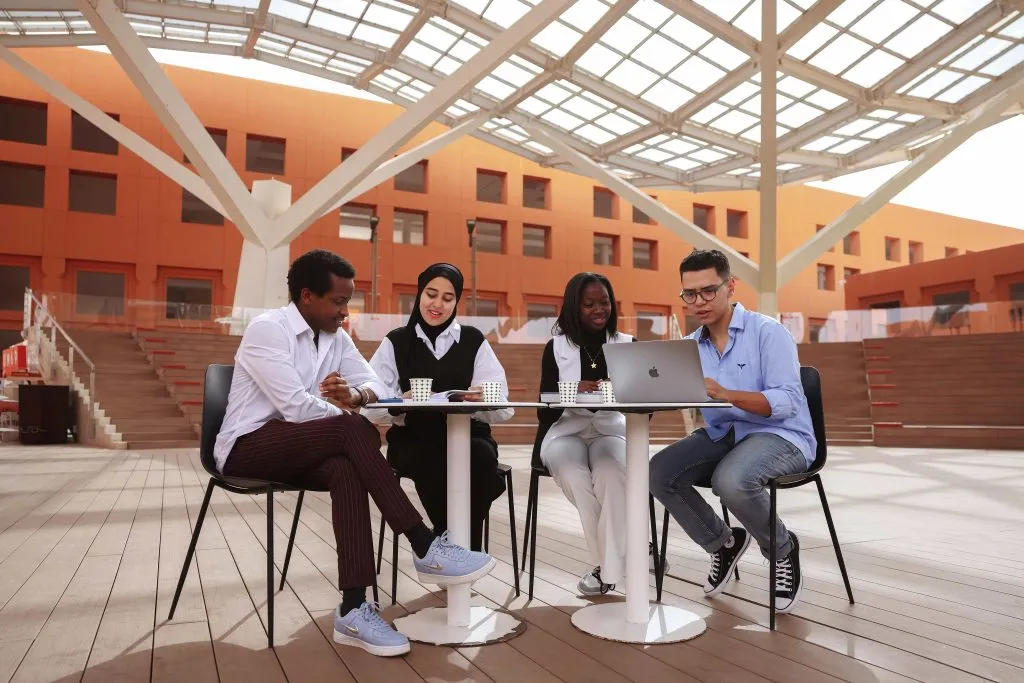
A peer-learning model
Known as 1337, this school within UM6P is Morocco’s first institution to offer coding training through a peer-to-peer educational programme. (Ecole42 has other campuses in Africa including in Madagascar and Angola).
Open to everyone, 1337 is entirely free of charge and does not require any prior degree for admission. According to Mehdi Charouh, who oversees the programme in the Rabat campus, students have to take on both individual and group projects designed to not only test their mettle, but to ensure that they learn by doing.
“We have projects that are really focused on collaboration and need three or four people to do but most of them are individual-based. However, even those individual projects require you to seek out information from your peers to enable you to complete them,” he explains.
The idea is to create a corps of complete professionals who not only excel at the technical aspects of the tasks but are able to lead, collaborate and communicate while executing projects to the highest standard. “Although we focus on the technology part, we also put a lot of emphasis on making the student or future employee able to function within a company. We put a lot of emphasis on communication and the softer skills so they know how to voice their opinions,” says Mehdi Charouh.
The school also invites opinions and feedback from companies where their students intern, so they can refine and improve their approach.
This new form of online and peer-to-peer learning – with compulsory modules taken within a specific time frame to allow students to pass on to the next stage of learning – is a gamified approach to coding that enables students to work both collaboratively and alone and to gain the different skillsets needed to be a competent coder.
Many of the students end up working for start-ups and the global tech companies that are dominating the world today. The university collaborates with some of them.
Is “brain drain” a worry? I’m told they can’t control where their students go, but they are confident that the values they have instilled will mean that the majority will want to contribute meaningfully to the continent.
UM6P also supports start-ups with an incubator and accelerator model, including through venture capital and investment funds, to support local entrepreneurship and enterprise. One of these is Innovx, which aims to invest $5bn to develop world-leading companies in areas across the electric vehicle value chain, energy and tech.
While UM6P’s real impact will only be felt when its graduates start delivering the change that it promises, it is clear that in the first decade of its existence, the institution has made solid progress towards its ambition of providing “Ivy League” quality education with a unique African ethos and identity.
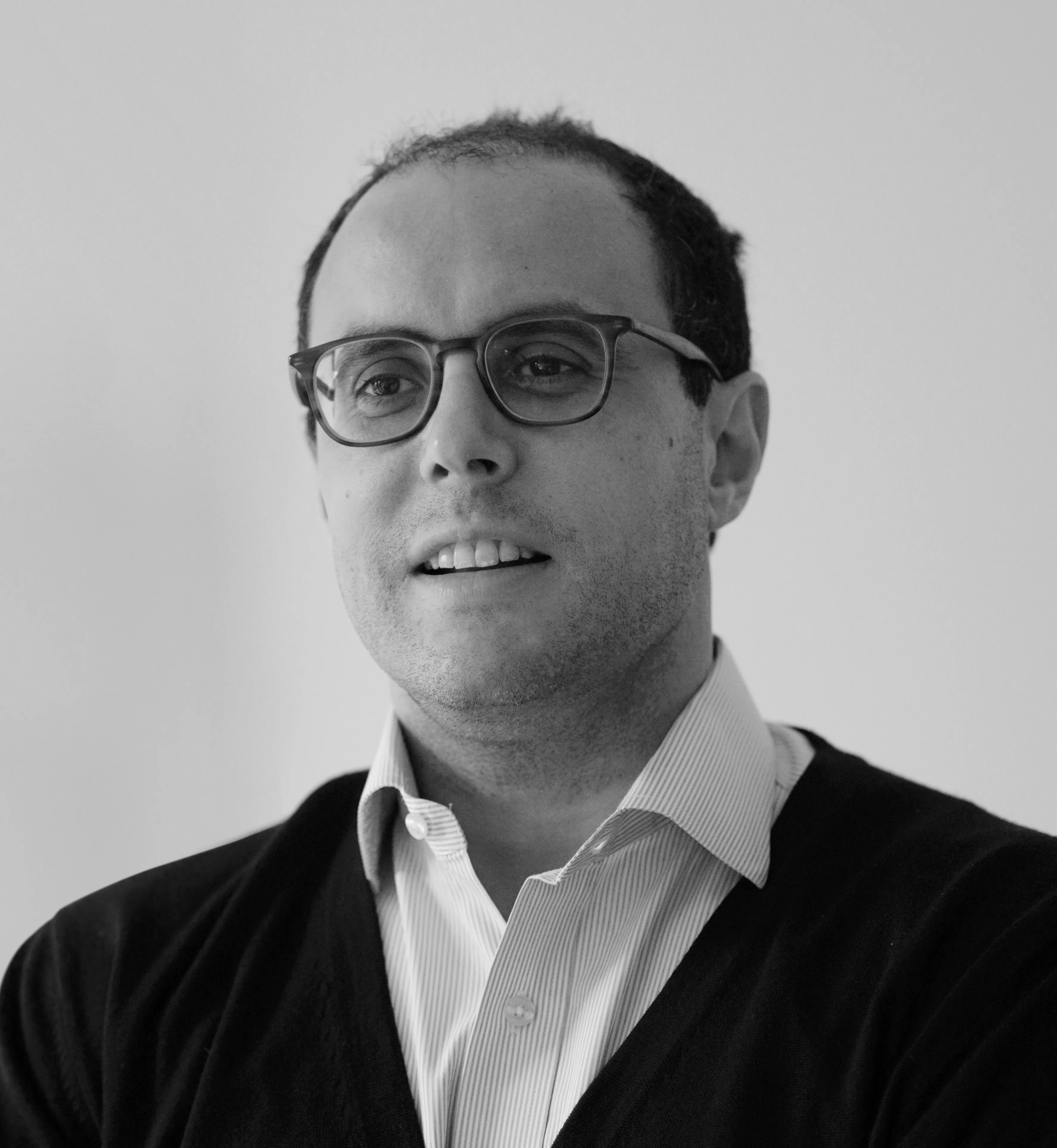
 Sign in with Google
Sign in with Google 